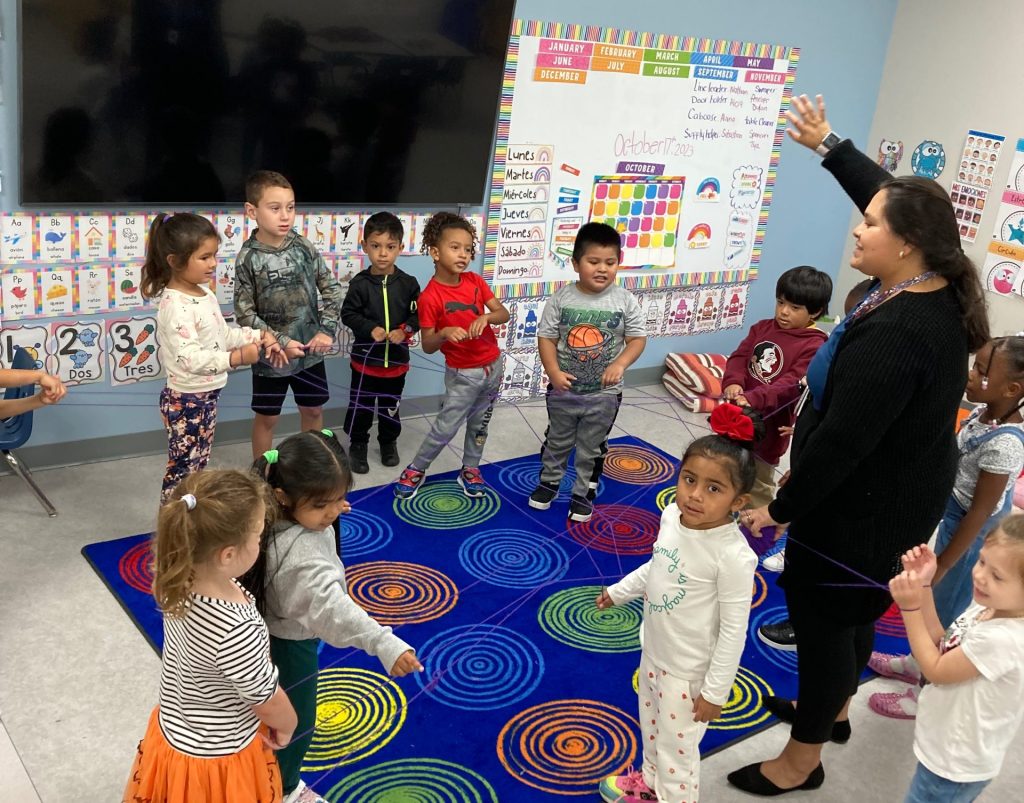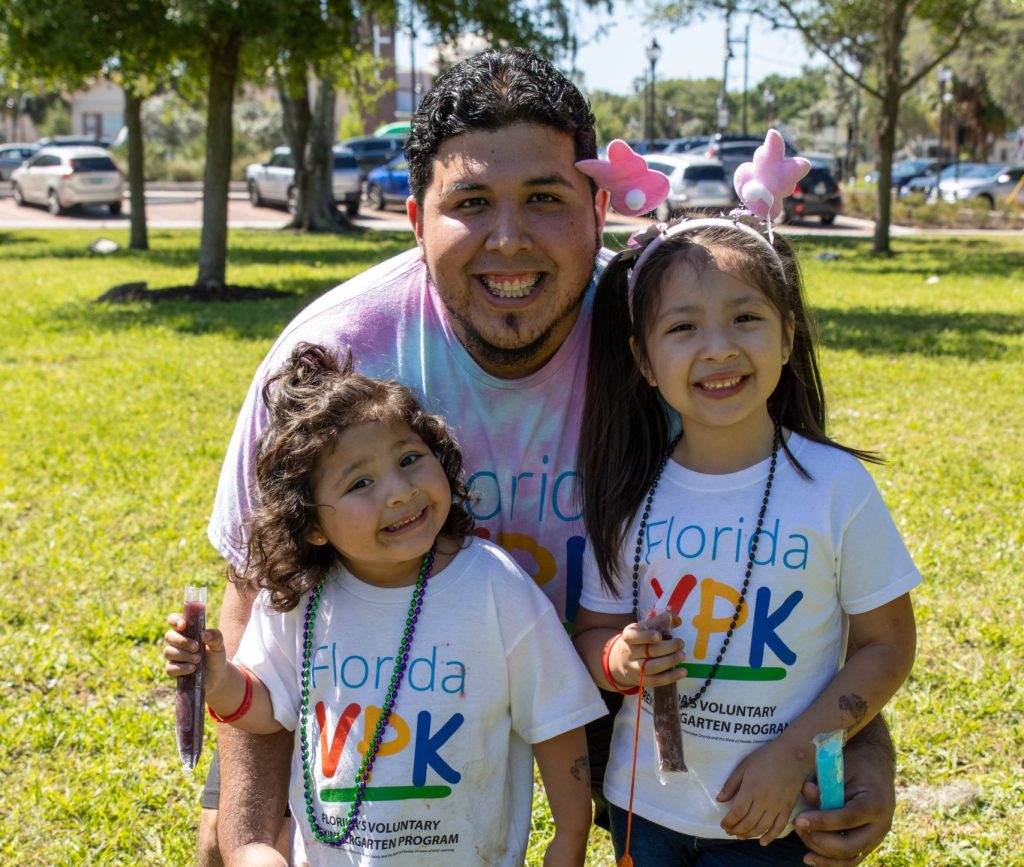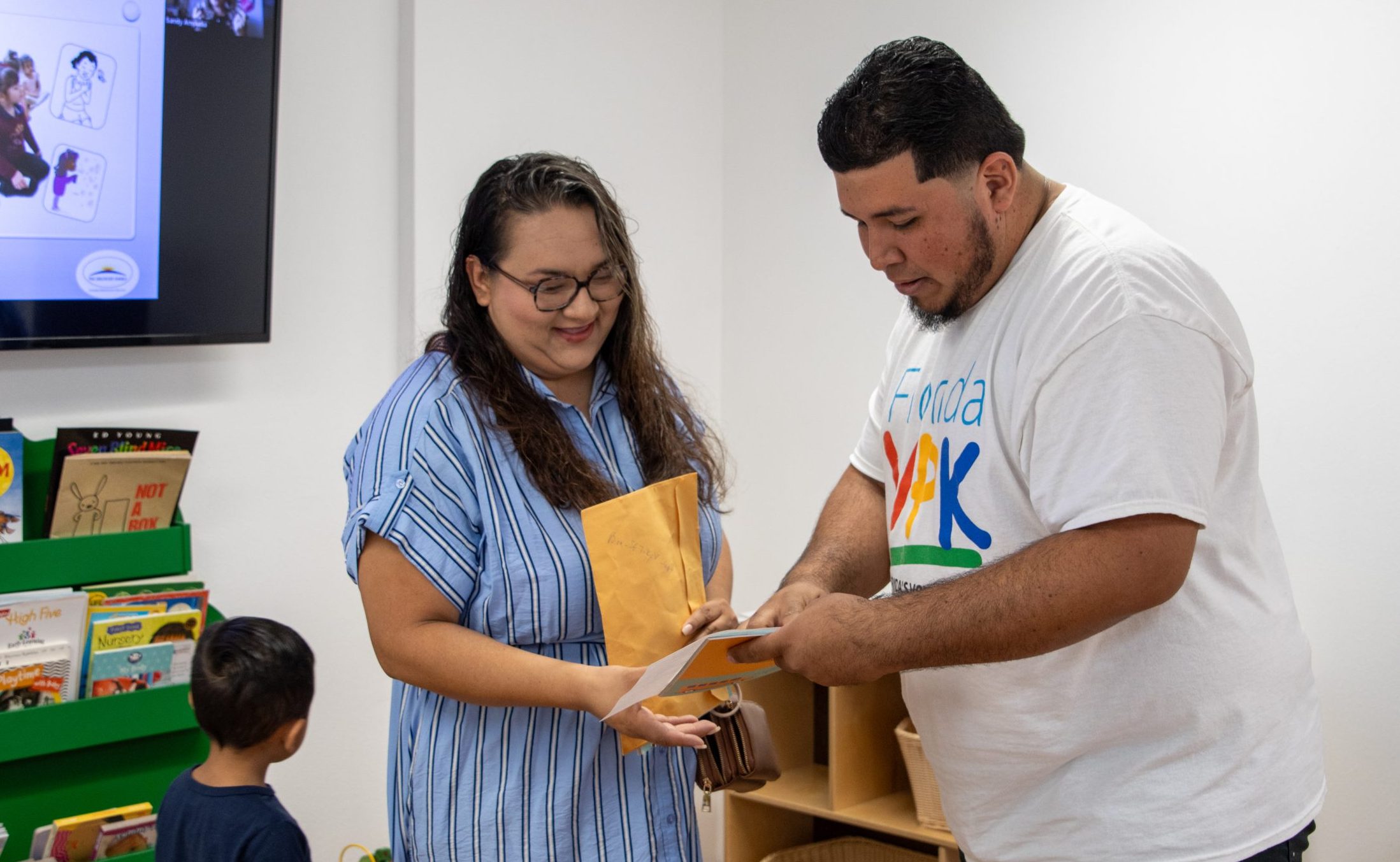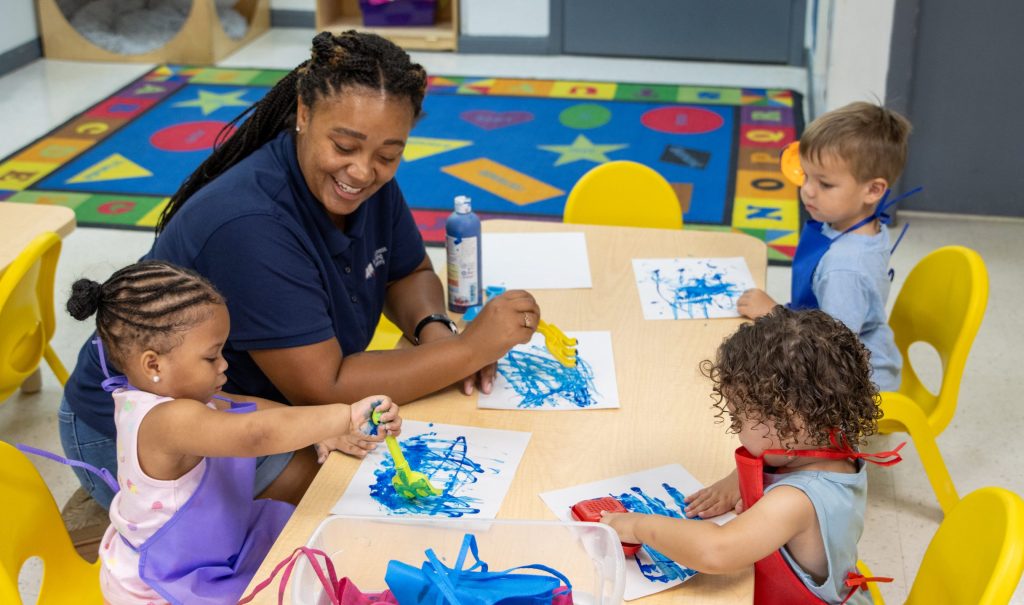WORDS: Shannon Evans
In an office at the Early Learning Coalition of Manatee County (ELC), Andres Guzman settles in and begins another day helping families enroll in Florida’s Voluntary Prekindergarten (VPK) program, now celebrating its 20th year. For many families, it’s their first step into the world of early learning education.
Andres remembers his own experience walking into a preschool classroom; it wasn’t called VPK yet. Back then, he barely spoke a word of English. His family spoke Spanish at home, and even in his native language, he struggled to express himself. For years, he communicated only through his older brother, who interpreted for him to their mom.
“I basically didn’t talk until I was eight,” Andres says. But one teacher saw his potential. She started as his preschool instructor and later became his speech therapist, walking alongside him through those early school years. Andres can still picture her. “She made such a difference for me.”
Born and raised in Manatee County, Andres attended Ballard Elementary, King Middle, and Southeast High. He’s now come full circle, living and working in the same community that once raised him.
Early Learning Advocates
These days, Andres and the ELC’s Family Services team help families from every background navigate a system that can sometimes feel overwhelming. He breaks it down step by step, answering questions and easing their worries. He walks parents through the process (and paperwork) with the kind of calm confidence that only comes from experience.
Andres became interested in supporting VPK families after seeing how much early learning helped his own daughter. Part of his job now is to make enrollment as easy as possible for others.
 “I’ve always believed that when families feel supported, kids thrive,” he says. “Now it’s a privilege to help families start their kids on the right foot. They come to me with questions about all kinds of things, like how to access the Family Portal, or what the difference is between VPK and School Readiness. It feels good to be able to tell them, ‘I’ve been where you are. Let me help you through it.”
“I’ve always believed that when families feel supported, kids thrive,” he says. “Now it’s a privilege to help families start their kids on the right foot. They come to me with questions about all kinds of things, like how to access the Family Portal, or what the difference is between VPK and School Readiness. It feels good to be able to tell them, ‘I’ve been where you are. Let me help you through it.”
His connection to early learning runs deep into his home life, too. His wife, Maria, is entering her third year as a VPK teacher at ¡Hola! Elementary School.
“I’ve always had a passion for working with young children,” Maria says. “But it really clicked in high school when I took an early childhood education class and worked with preschoolers. Watching how curious and eager they were to learn truly moved me. I knew I wanted to help build that foundation, not just in reading and math, but in confidence and social-emotional growth. It’s incredibly rewarding. The relationships I build with students and families, and the sense of purpose I feel in shaping their future, keep me passionate and committed year after year.”
She finds joy in the little things, like the first time a child writes their name or figures out how to share. Watching students light up when they learn a new word still makes her smile. And no two days are the same.
“Four-year-olds are incredible,” Maria says. “They’re honest and funny, full of personality. That makes every day unpredictable! And you see their growth in real time.”
She relays the story of one little girl who began the year too shy to speak, especially in English. Maria worked with her gently and consistently, celebrating each step forward. By mid-year, the girl stood during the morning meeting and confidently recited all the vowels in both English and Spanish. From that day on, she spoke more fluently. She even performed in the VPK graduation without being scared.
Moments like that remind Maria why VPK is so important, and why she chose this work. “I wish parents knew it’s okay if their child isn’t ‘perfectly ready,'” she says. “Growth takes time, and every child develops at their own pace. That’s the whole point of VPK—it’s a stepping stone in their growth, prepping kids emotionally and socially for kindergarten and future success.”
Little Leaders
A similar transformation has unfolded in Maria and Andres’s own home. Their oldest daughter, Rosalie, graduated from VPK in 2024. Over the course of the year, she became more social and independent. Now she has started first grade and is super proud of her ability to read and write. Her favorite parts of VPK included learning centers, drawing, and being line leader. She still talks about her best friend there, Jordan.
 “VPK helped her find her voice,” Maria says. “Now she’s comfortable around everyone. She’s not afraid to ask questions or try something new.”
“VPK helped her find her voice,” Maria says. “Now she’s comfortable around everyone. She’s not afraid to ask questions or try something new.”
“She even orders her own food at a restaurant,” Andres adds.
Their youngest daughter, Mariana, began VPK this fall. All summer she was buzzing with excitement and couldn’t wait to sing the alphabet, count on her fingers, and explore music. She talks about her new classroom: a big, bright room filled with toys and colorful posters, sleeping bags for nap time, and tables for learning.
At home, Andres and Maria helped her prepare. But with a year of three-year-old preschool already behind her, Mariana is a pro at saying goodbye to her parents at the classroom door.
“You get to be the leader now,” Andres tells her. “You can help the other kids feel brave.”
Florida is one of only four States that offers free prekindergarten to all four-year-olds, regardless of income (the others being Vermont, Oklahoma, and Washington, D.C.). Last year, more than 160,000 children were enrolled statewide. That’s 160,000 kids better prepared for kindergarten.
“Some people think it’s just playtime,” Andres says. “But that play is purposeful. Kids are learning how to take turns, follow routines, express emotions, and be part of a group. It’s school readiness, but also life readiness.
“I’ve seen it transform my family,” he adds. “And now I get to help others experience that, too.”
Why VPK Matters
Kindergarten-ready: Children in VPK programs are more prepared for school academically, socially, and emotionally.
Early skill building: VPK introduces reading, math, critical thinking, and communication skills, along with routines and teamwork.
Long-term benefits: Kindergarten-ready students are more likely to read at grade level by third grade, graduate on time, and need fewer interventions.
Supports all learners: VPK especially benefits children from diverse backgrounds or low-income families, helping close achievement gaps.
Free and flexible: Florida’s VPK program is free for children who turn 4 on or before September 1, with options in both public schools and private centers.





